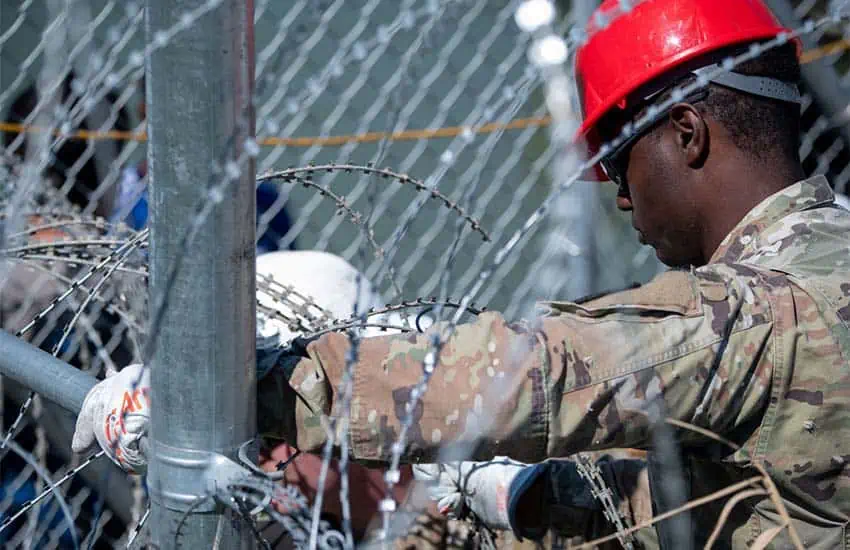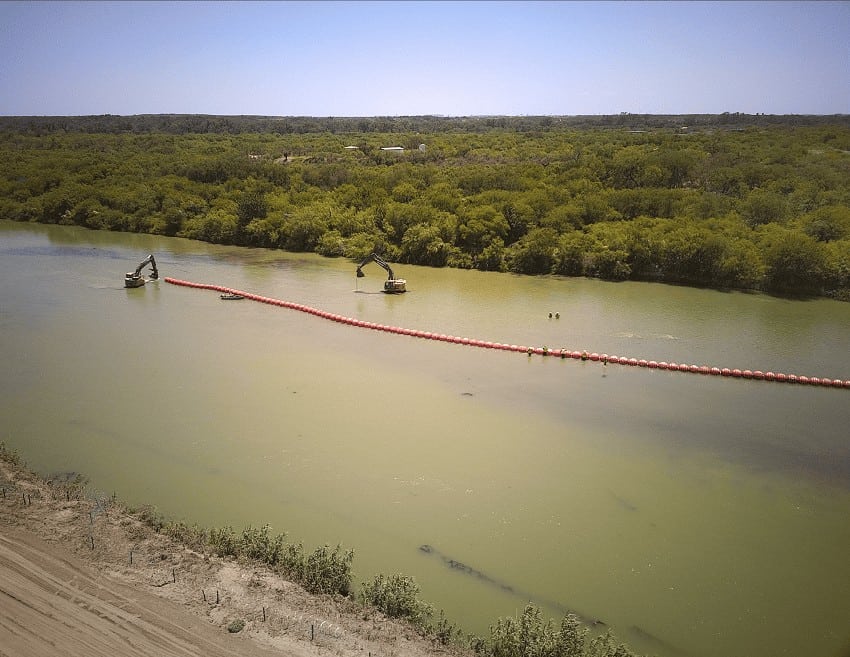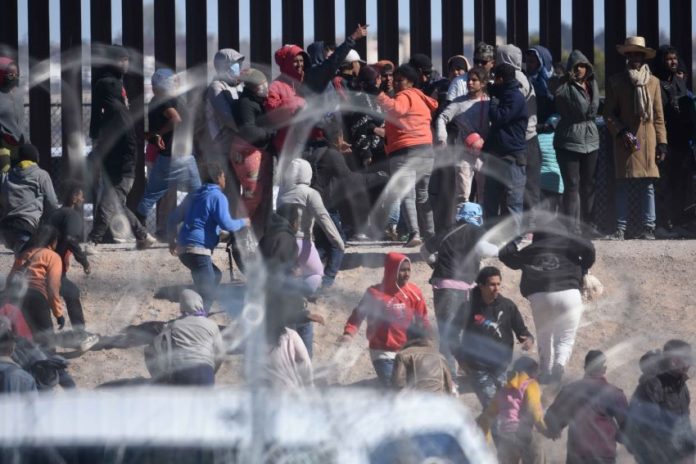A federal appeals court in the United States issued a ruling on Tuesday that extends the prohibition on the enforcement of a law that allows Texas to detain and deport to Mexico migrants who entered the U.S. between official ports of entry.
A panel of three judges from the 5th U.S. Circuit Court of Appeals voted 2-1 to maintain a ban on the enforcement of the Texas state law known as Senate Bill 4 (SB 4), which was approved by the Republican Party-controlled Texas Legislature last year. The ruling came after a hearing in Louisiana last Wednesday.
The U.S. Supreme Court handed down a decision on March 19 that enabled Texas to enact SB 4, which allows state authorities to arrest people on suspicion of having entered the U.S. illegally and gives local judges the authority to deport migrants to Mexico regardless of their nationality.
However, the application of the law was blocked by the 5th Circuit on appeal later the same day, and no arrests of migrants were reported by Texas authorities during the brief period that it was in effect.
The U.S. government has argued that immigration enforcement is an exclusive power of federal authorities and that application of SB 4 will create chaos at the border with Mexico.
Led by Republican Party Governor Greg Abbott, the Texas government says that federal authorities aren’t doing enough to secure the border and that it has a constitutional right to take its own action to curb the entry of unauthorized migrants into the United States.

Priscilla Richman, chief judge of the 5th U.S. Circuit Court of Appeals, sided with the U.S. government.
In a written opinion, she said that “for nearly 150 years, the Supreme Court has held that the power to control immigration — the entry, admission, and removal of noncitizens — is exclusively a federal power.”
SB 4 “creates separate, distinct state criminal offenses and related procedures regarding unauthorized entry of noncitizens into Texas from outside the country and their removal,” wrote Richman, who was appointed by former U.S. president George W. Bush.
Judge Irma Carrillo Ramírez, who was appointed by current U.S. President Joe Biden, also voted in favor of blocking the enforcement of the Texas law. Judge Andrew Oldham, who was appointed by ex-president Donald Trump and was a former aide to Abbott, dissented with the majority decision.
Oldham wrote that “in our federal system, the state of Texas is supposed to retain at least some of its sovereignty” and the Texan people “are supposed to be able to use that sovereignty to elect representatives and send them to Austin to debate and enact laws that respond to the exigencies that Texans experience and that Texans want addressed.”
The court’s ruling on Tuesday “will likely prevent enforcement of the law until a final decision on its merits, either by the 5th Circuit or the U.S. Supreme Court,” the Associated Press reported.
Even without the power to enforce SB 4, Abbot — an outspoken critic of U.S. President Joe Biden and his government’s immigration policies — is maintaining a hardline approach to stemming illegal migration into the U.S. with his Operation Lone Star strategy.

“Operation Lone Star is working. … Illegal crossings are going down in Texas while at the same time they are skyrocketing in California & Arizona. It’s because of the border wall, razor wire barriers, the National Guard & arrests by DPS [the Texas Department of Public Safety],” he wrote on the X social media platform on Tuesday.
Mexico’s opposition to SB 4
After the Supreme Court ruled last week that Texas could enforce SB 4, the Mexican government said that Mexico would not accept the return of migrants by the Lone Star state “under any circumstances.”
The law “seeks to stop the flow of migrants by criminalizing them, and encouraging the separation of families, discrimination and racial profiling that violate the human rights of the migrant community,” the Ministry of Foreign Affairs (SRE) said in a statement.
Given that Mexico says it won’t accept any migrants deported by Texas, it is unclear what in fact would happen to people expelled from the Lone Star state under SB 4.
President Andrés Manuel López Obrador has called the law “inhumane” and “politically motivated” and denounced a range of other anti-immigration measures enacted by Governor Abbott, including the strict inspection of trucks entering Texas and the installation of floating barriers in the Rio Grande.

López Obrador and other government officials have also staunchly defended the rights of Mexicans and other migrants who live in the United States.
“Our migrants in the United States are not criminals. Their contribution to the U.S. economy is fundamental,” Foreign Affairs Minister Alicia Bárcena said on X last week.
On Tuesday, she noted that in making its latest ruling, the 5th U.S. Circuit Court of Appeals made reference to the amicus curiae (friend of the court) brief filed by Mexico against SB 4.
Bárcena highlighted a section of the ruling that says “there is a high risk that enforcement of SB 4 would cause international friction” and acknowledges that “Mexico has already protested SB 4 and signaled that the statute’s enforcement would frustrate bilateral efforts, including noncitizen removals.”
The Mexican government, which has largely cooperated with its United States counterpart on migration-related issues, has made clear its view that immigration enforcement is the purview of federal authorities.
“Mexico categorically rejects any measure that allows state or local authorities to exercise immigration control, and to arrest and return nationals or foreigners to Mexican territory,” the SRE said last week.
